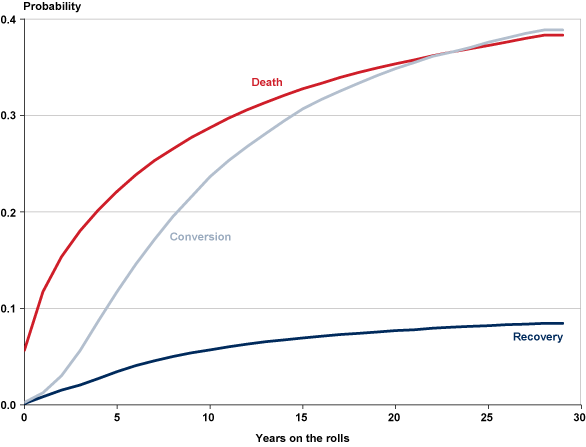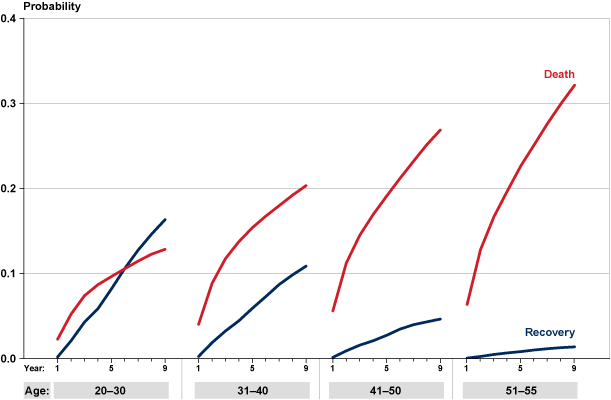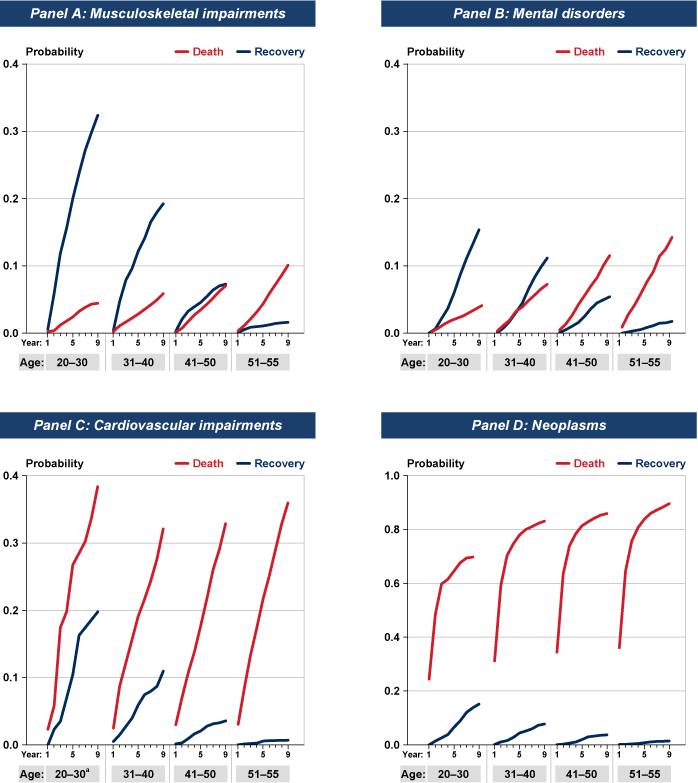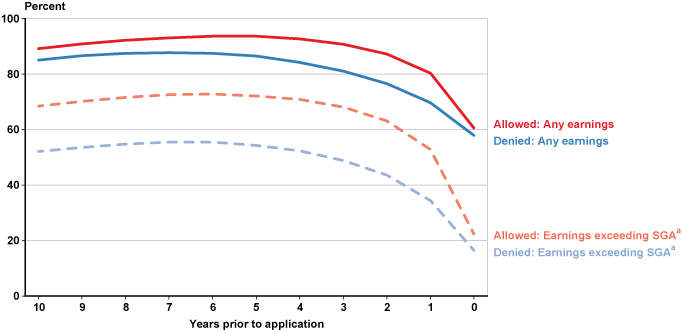From Outcomes Following Termination of Social Security Disability Insurance Benefits, an article in the Social Security Bulletin, the agency's scholarly journal:
We examined the experiences of former Social Security Disability Insurance (DI) disabled-worker beneficiaries in the years following termination of benefits due to medical improvement or work. Using Social Security Administration data, we found that approximately 16 percent of former DI-only beneficiaries whose benefits were terminated because of medical improvement between 2005 and 2014 returned to DI entitlement within 5 years of termination. By contrast, the DI reentitlement rate during the same period among those whose benefits were terminated because of work was significantly higher (about 32 percent). Fewer than half (45 percent) of former DI-only beneficiaries whose benefits were terminated because of medical improvement had average post-termination earnings exceeding the poverty threshold, compared with 71 percent of beneficiaries with work-based terminations. Age, entitlement duration, the likelihood of medical improvement, and certain diagnoses—especially psychotic disorders, intellectual disorders, neoplasms, and injuries—correlated with earnings levels and the likelihood of DI reentitlement in the years following benefit termination.







